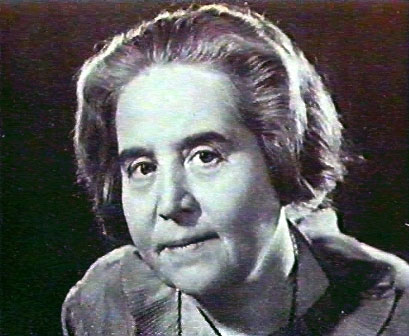
Podcast: Play in new window | Download (Duration: 38:35 — 26.6MB) | Embed
Subscribe: Apple Podcasts | Spotify | Amazon Music | Android | Pandora | iHeartRadio | JioSaavn | Podchaser | Gaana | Podcast Index | Email | TuneIn | Deezer | Anghami | RSS | More
Episode 2 – The Importance of Symbolic Language – Gertrude von Le Fort’s The Eternal Woman – Climbing Higher, Going Deeper w/Kris McGregor and Vivian Dudro
Kris McGregor, along with Vivian Dudro, continues their discussion of The Eternal Woman by highlighting the importance of the introduction, urging listeners to approach it slowly and prayerfully to grasp von Le Fort’s dense but insightful writing. The discussion emphasizes von Le Fort’s critique of simplifying theology for a broader understanding, advocating instead for elevating communication to convey truth more effectively, akin to Christ’s teachings.
Von Le Fort is praised for her precise but accessible language, despite her deep philosophical background. The episode explores her focus on the symbolic aspect of male and female, particularly the female, in relation to God’s creation and communication. It discusses how von Le Fort views the physical world and its symbols as mediums through which God communicates metaphysical realities, using symbolic language intrinsic to human expression and understanding.
The conversation also touches on modern philosophical shifts that have obscured the intrinsic meanings of symbols, contributing to a cultural disconnect from these deeper truths. Von Le Fort’s work is positioned as a call to rediscover the symbolic language lost over time, particularly concerning the essence of womanhood and its spiritual significance. The hosts discuss how von Le Fort uses Mary, the mother of Jesus, as the epitome of the feminine symbol, embodying both reception and nurturing, which are crucial for understanding human’s relationship with the divine.
This episode underscores von Le Fort’s aim to reorient readers towards a more profound comprehension of the symbolic meanings embedded in the creation, particularly the distinctions and roles of men and women, without reducing them to mere biological or psychological terms. It calls for a re-engagement with symbolic language to foster a deeper connection with God and a more authentic understanding of one’s identity and purpose.
Key Points to Ponder
-
- Symbolic Language as a Medium of Divine Communication: The episode highlights von Le Fort’s exploration of symbolic language as a crucial tool through which God communicates with humanity. This symbolic language is not only a feature of religious texts and rituals but is also embedded in the creation itself, particularly in the symbolic aspects of male and female.
- Rediscovering the Lost Language of Symbolism: There’s a call to rediscover the language of symbolism that modern philosophical shifts have obscured. This rediscovery is essential for understanding the deeper truths about God, creation, and the roles of men and women.
- Mary as the Ideal Symbol of the Feminine: Mary, the mother of Jesus, is discussed as the epitome of the feminine, embodying reception and nurturing. Her role transcends biological and social functions, symbolizing a deeper spiritual truth about humanity’s relationship with the divine.
- The Significance of Sexual Differentiation: The discussion touches on the importance of recognizing and understanding the symbolic significance of sexual differentiation. This differentiation is not merely biological but carries deep metaphysical meanings related to God’s creation and communication.
- The Role of Women and Men in Symbolizing Divine Truths: Both hosts delve into how women and men symbolize different aspects of divine truths. While discussing the unique contributions of women through their receptivity and nurturing capabilities, they also explore how men embody bravery and protection, reflecting different facets of God’s nature.
- The Danger of Ideological Confusion over Gender and Symbolism: The conversation warns against the modern ideological confusion that blurs the distinctions between genders and undermines the symbolic meanings embedded in our created nature. It stresses the importance of embracing our God-given identities to fully understand and live out our relationship with God.

Discerning Hearts Reflection Questions:
Individual Reflection Questions:
-
- Reflecting on Symbolic Language: How does the symbolic language found in Scripture, Liturgy, and the natural world deepen your understanding of God’s communication with humanity? Consider examples from your own experience where symbolic language has illuminated aspects of your faith.
- The Role of Mary as a Symbol: Reflect on Mary’s role as the epitome of the feminine and the ideal disciple. How does her example of receptivity, nurturing, and obedience to God challenge and inspire your own journey of faith?
- Understanding Theological Complexity: Gertrude von Le Fort critiques the oversimplification of theology for broader understanding. Reflect on a time when a deeper exploration of a complex theological concept led to a significant growth in your faith. How does this encourage you to approach theological studies in the future?
- Sexual Differentiation and Symbolic Significance: How do you understand the symbolic significance of sexual differentiation in the light of Catholic teaching? Reflect on how this understanding influences your views on sexual differences, identity, and the complementarity of men and women in God’s plan.
- Combatting Ideological Confusion with Faith: In a world where ideological confusion often blurs the distinctions between genders and undermines symbolic meanings, how can your faith guide you in affirming the truth about God’s design for humanity? Consider ways in which you can bear witness to these truths in your own life and community.
Group Study Discussion Questions:
-
- Exploring Symbolic Language in Faith: As a group, discuss examples of symbolic language in the Catholic faith that resonate with you personally. How do these symbols enrich your understanding of divine truths and your relationship with God?
- Mary’s Symbolic Role: Reflect on Mary’s role as not only the mother of Jesus but also as a symbol of the Church and the epitome of the feminine. How does this dual role of Mary inspire your group’s understanding of discipleship and the unique contributions of women in the Church?
- Challenges of Theological Simplification: Share thoughts on the balance between making theology accessible and oversimplifying complex doctrines. Can you think of instances where a deeper understanding of a challenging theological concept significantly impacted your faith or the faith of someone you know?
- Sexual Differentiation and Spiritual Symbolism: Discuss the significance of sexual differentiation as presented in the podcast. How can recognizing the spiritual symbolism of masculinity and femininity enhance the Church’s mission and the Christian community’s unity?
- Addressing Ideological Confusion with Faithful Witness: In light of the podcast’s discussion on the modern ideological confusion surrounding gender and symbolism, how can your group actively promote a faithful understanding of human dignity and God’s design within your parish or community? What practical steps can be taken to support individuals struggling with these issues in a compassionate and truthful manner?
Suggested References for Further Study:
The Symbolic Significance of Femininity and Masculinity:
Podcast Mention: Discussion of Gertrude von Le Fort’s exploration of the symbolic aspects of femininity and masculinity, as well as their spiritual and metaphysical implications.
Reference to Theology of the Body:
- Pope St. John Paul II’s Insight: In “Theology of the Body,” Pope St. John Paul II offers profound theological and philosophical reflections on human sexuality, complementarity, and the symbolism of the body as a divine mystery, echoing von Le Fort’s thematic discussions.
- Reference: Pope St. John Paul II. “Man and Woman He Created Them: A Theology of the Body.” Pauline Books & Media, translation by Michael Waldstein, 2006.
Ethical Dimensions of Human Relationships:
Podcast Mention: Touches on the importance of understanding the ethical and moral dimensions underpinning human relationships, hinting at a deeper, symbolic understanding of our interactions.
Karol Wojtyła’s (Pope St. John Paul II) Philosophical Foundation:
- Insight from “Love and Responsibility”: Wojtyła addresses the ethical and moral considerations of human relationships, offering foundational insights that support the podcast’s discussion on the symbolic aspects of relationships.
- Reference: Wojtyła, Karol (Pope St. John Paul II). “Love and Responsibility.” Ignatius Press, 1993.
Unique Gifts and Vocation of Women:
Podcast Mention: Emphasizes the unique contributions and vocation of women, as discussed by Gertrude von Le Fort and echoed by the podcast hosts.
Alice von Hildebrand’s Perspective:
- Complementary Insights in “The Privilege of Being a Woman”: Von Hildebrand champions the beauty and strength of femininity, challenging contemporary misunderstandings, in parallel to von Le Fort’s discussions.
- Reference: Von Hildebrand, Alice. “The Privilege of Being a Woman.” Veritas Press, 2002.


